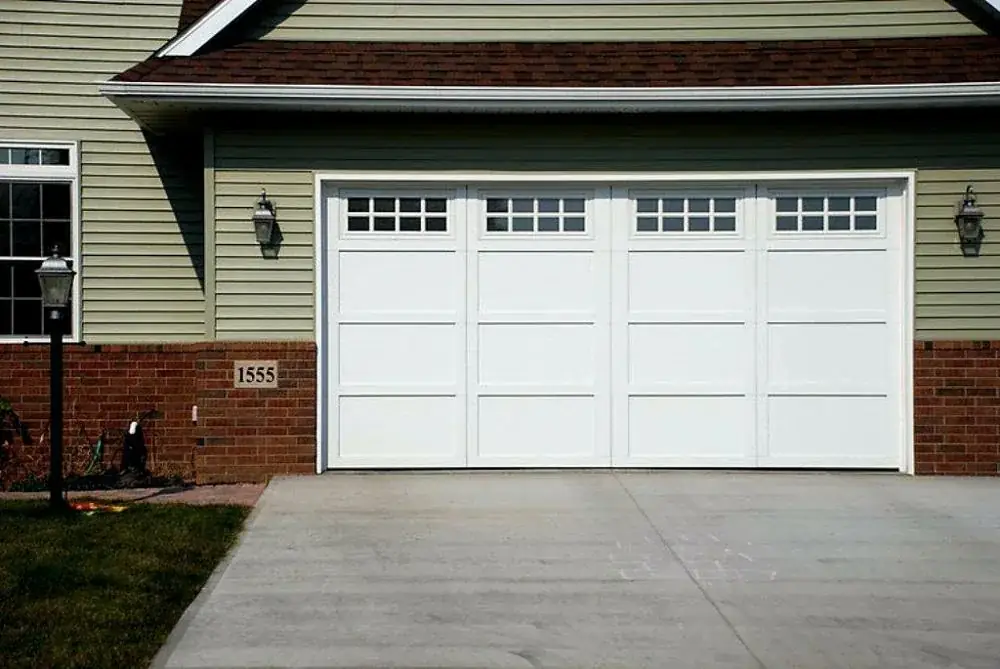There’s this weird moment when you hit the button and expect your garage door to quietly (or not-so-quietly) roll down like it always does—only to find it stopping halfway… or going right back up.
Maybe it’s just a blip. You try again. Same thing. And then you’re standing there, in your socks, trying to figure out why your garage door not closing all the way is suddenly your life’s biggest mystery.
Quick Checks If Your Garage Door Not Closing all the way
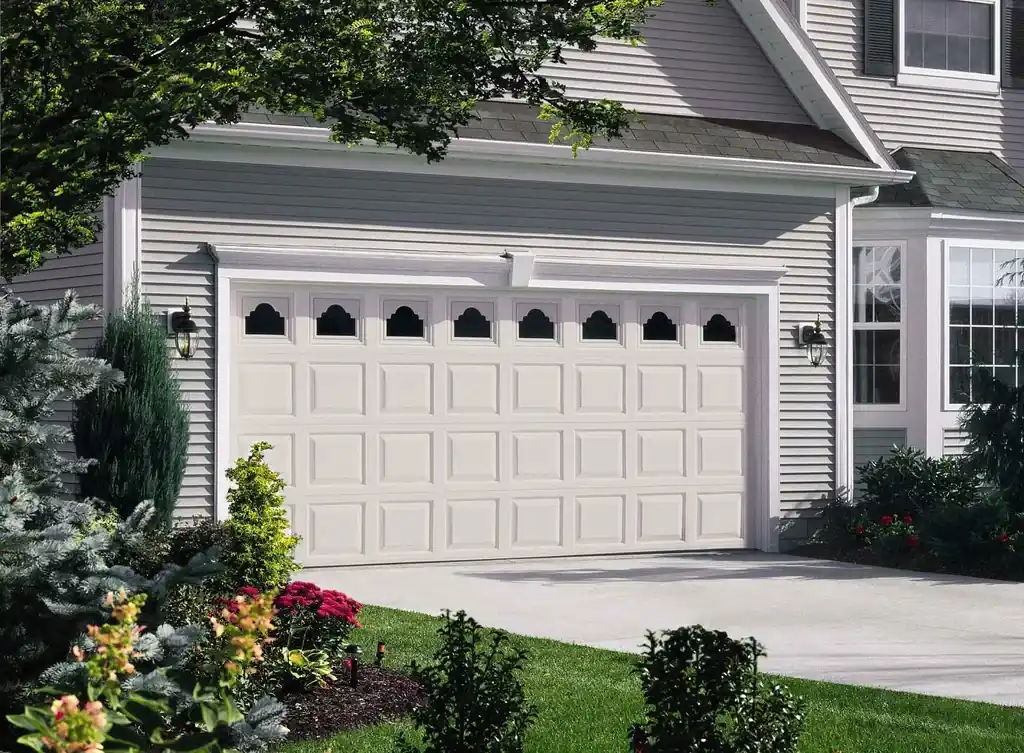
You’re not alone, by the way. This is one of those problems that feels small until it isn’t—especially when your car’s still inside, or worse, outside and it’s 19 degrees.
Here are ten possible reasons (and fixes) for your garage door not closing all the way. Some are weirdly easy. Others? You might want to call someone.
1. Something’s in the Way (No, Seriously. Look Again.)
It sounds too simple, doesn’t it? But a surprising number of calls to garage door repair services start with something like a broom handle, a toy truck, or even a fallen leaf messing with the sensor.
Automatic garage doors have photo eyes (infrared beams) that shoot across the bottom of the door frame. If anything interrupts them—even dust on the lens—it tells the opener to reverse. So if your garage door won’t close all the way and goes back up? Maybe it’s just a stray leaf. Or that package you meant to bring inside three days ago.
Pro tip: Check the floor, the tracks, and the area near the photo eyes. Then check again. Gently clean the sensors with a soft cloth.
2. Misaligned Safety Sensors (Aiming Problems)
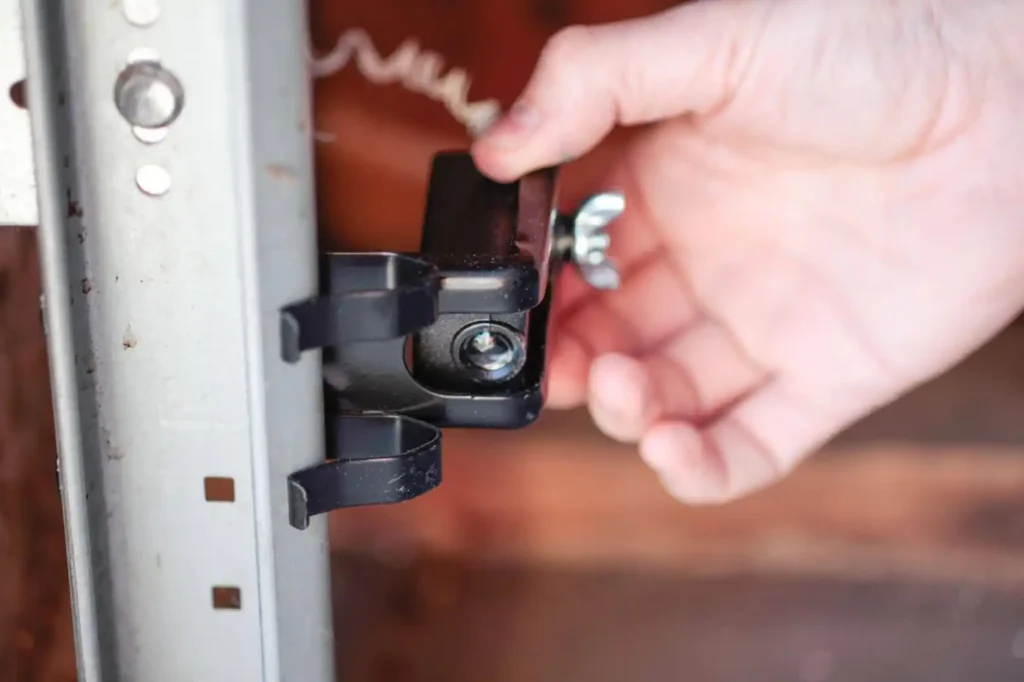
You cleaned the lenses. Cool. But if they’re out of alignment, it won’t matter. The photo eyes need to look directly at each other. If one gets nudged even a little—by a trash can, a football, whatever—it might stop communicating properly.
Many openers (especially LiftMaster and similar systems) show this by blinking lights on the opener or sensor. If your garage door not closing after cleaning sensor, this might be the issue.
A small nudge or twist usually fixes it. Just gently move the sensors until the light stops blinking. Sometimes it takes a few tries. Annoying, but doable.
3. Limit Settings Drifted (Tiny Screws, Big Impact)
This one’s sneaky. Inside your garage door opener, there are these little screws—limit screws—that tell the door how far to go. If those settings drift (which they can, over time), your garage door might stop short. Or worse, close fully and bounce back open.
So if your garage door not closing all the way on one side, or leaving a mysterious gap, maybe the travel limit settings are just… off. Slightly.
Your owner’s manual (if you didn’t throw it away) has diagrams on how to adjust these. But honestly, YouTube works too. You’ll usually need a flathead screwdriver.
4. Damaged or Dirty Tracks
Let’s talk hardware. The metal tracks your garage door slides along? If they’re bent, warped, or full of debris, your door might snag or stop short. And you might hear a nasty screech or bump when it does.
Inspect the tracks. If they’re visibly bent or feel uneven when you run your hand along them, that’s a red flag. Same goes for buildup—leaves, grit, even spider webs can get caught in the wrong places.
Don’t try to hammer bent tracks back yourself. It looks easy. It’s not. Call a professional garage door service.
5. Springs That Have… Sprung
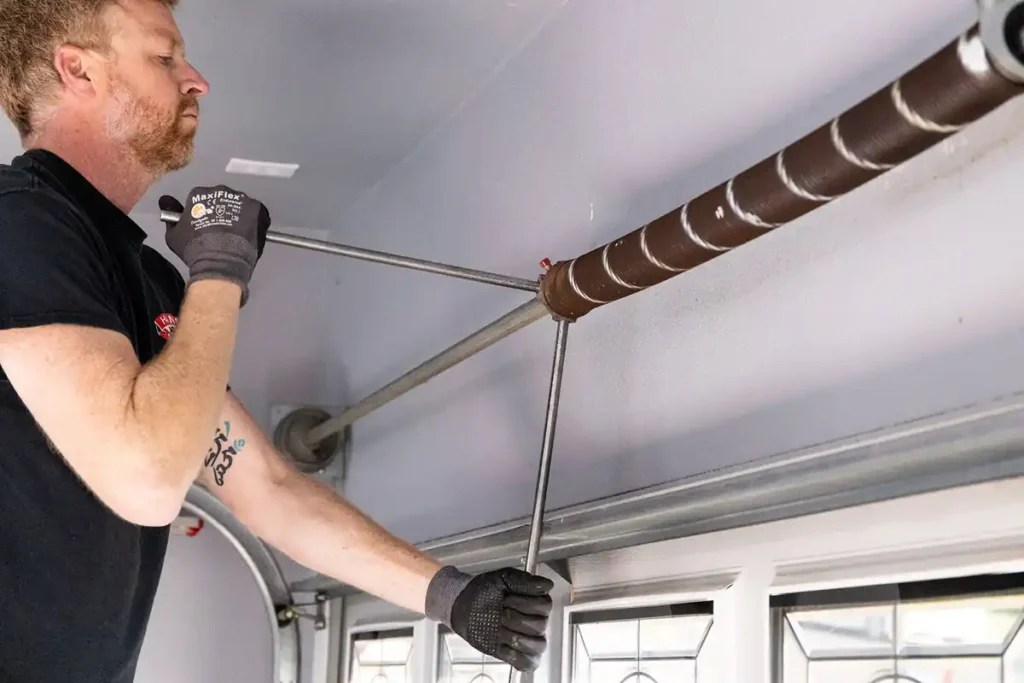
Garage Door Springs do a lot of the heavy lifting (literally). If one breaks or weakens, it can throw the whole system off balance. A broken torsion spring can sometimes be spotted—look for gaps or hanging pieces. But sometimes the failure is subtle.
If your garage door not closing all the way when cold, springs are often the reason. Cold makes metal contract. Weak springs contract more. Result? Uneven closing or that annoying bounce-back.
This one’s not a DIY fix. Broken springs can be dangerous. Like, “hospital visit” dangerous
6. Cable Trouble
Cables work alongside springs to lift and lower the door. They fray. They rust. They break. And when they do, your garage door can suddenly hang crooked—or refuse to close entirely.
Check both sides of the door. If it’s sagging or seems uneven, inspect the cables (from a safe distance). If one’s snapped, it’ll probably be obvious. You might even find it lying on the floor.
Professional Garage Door Repair Services can usually fix this quickly. Just don’t try it solo—these cables are under serious tension.
7. Remote Control (Or Wall Panel) Gone Rogue
Sometimes, it’s not the door. It’s the signal. Remotes can lose sync. Batteries die. Wall units can short. If your garage door won’t close unless you hold the button down? That’s a big hint the safety override is active—usually a sensor issue.
But it might also mean your remote transmitter isn’t sending a clean signal. Try replacing batteries, re-syncing, or even just resetting the system. If you’re like me, you probably haven’t done that since you moved in.
8. Weather Can Mess Everything Up
Cold weather, especially, changes things. If your garage door not closing all the way when cold, it’s probably a combination of contracting metal, stiff lubricant, and weak springs. And yeah, it’s a thing.
Use a garage door lubricant (not WD-40) on rollers, hinges, and springs. Let it warm up a bit if you can. If nothing helps, call in a technician—there may be deeper mechanical issues that only flare up when temps drop.
9. Something’s Off Inside the Opener Mechanism
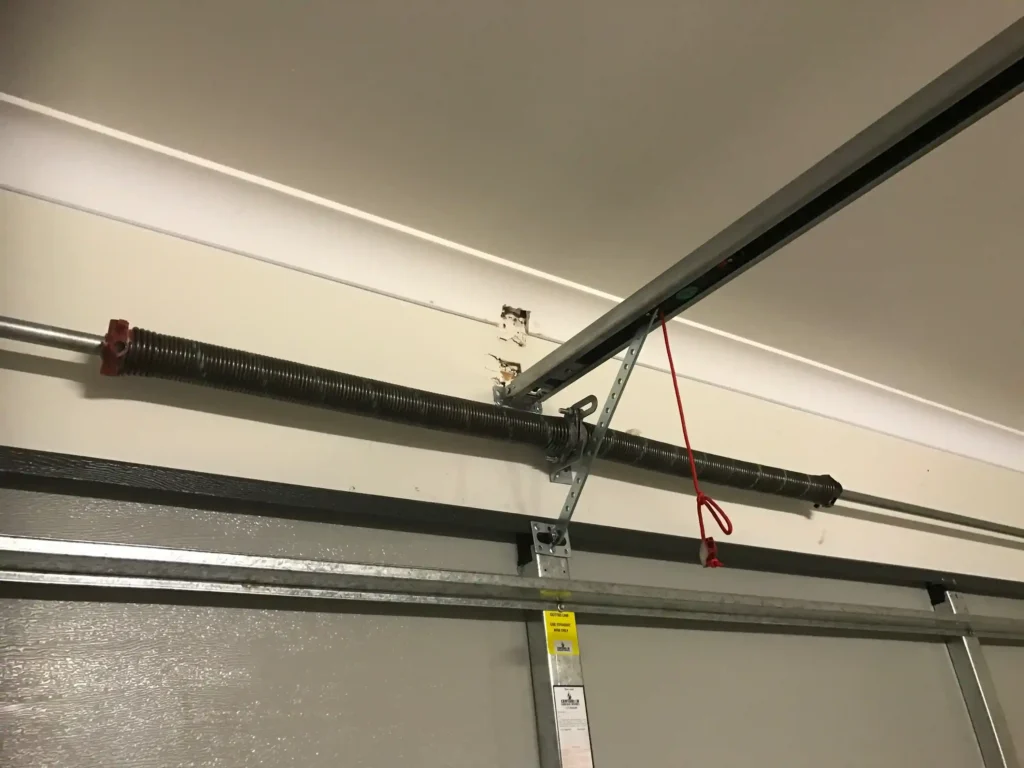
If none of the above help, the problem might be hidden inside the garage door opener itself. Stripped gears, fried circuits, or damaged limit switches can all cause a garage door not closing all the way.
Some LiftMaster garage door not closing all the way cases are traced back to stripped nylon gears. These make a grinding noise or drop white dust. Others involve a blown limit switch or malformed data in the logic board (yes, that’s a thing).
Honestly? This is the point where a call to a garage door service professional saves you a lot of swearing.
10. When All Else Fails… Could Be Interference or Bad Data
Here’s where things get weird. A glitchy garage system—especially smart ones—can be affected by everything from electrical surges to network hiccups. Even some odd Cloudflare Ray ID errors or malformed SQL command data logs (mostly on the app or dashboard side) can mess with how your garage behaves.
If nothing else works and your door’s behavior seems erratic, do a full reset of your smart system. Reinstall the app, reset the Wi-Fi. Reconnect remotes. Clear the memory. Start fresh.
Sometimes? That’s the fix. Just like unplugging your router.
The Human Side of Garage Door Troubleshooting
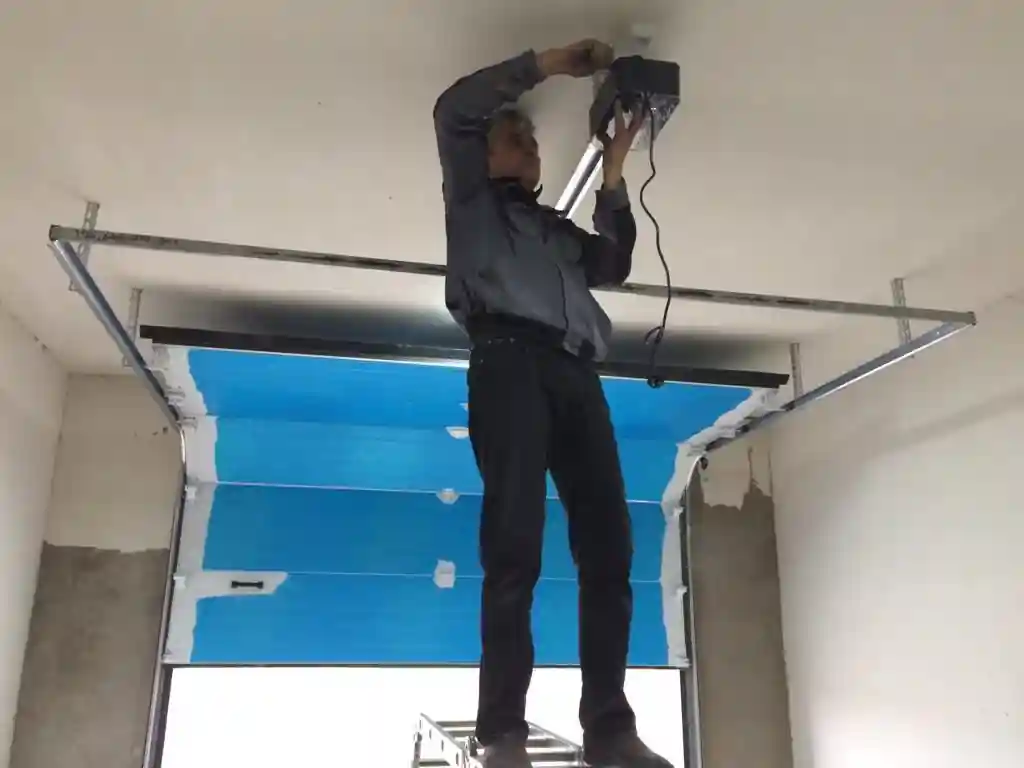
Maybe it’s just me, but there’s something strangely humbling about fiddling with a stubborn garage door at 10 p.m. in your pajamas, flashlight between your teeth, muttering about limit screws like they’re personal enemies.
Garage doors are one of those home systems you don’t think about… until they stop working. Then it’s a weird mix of mechanical puzzle and emotional rollercoaster.
But the good news? Most issues are fixable. And the ones that aren’t? There are some great professionals out there who’ve seen it all.
Final Thought
A garage door not closing all the way can feel like a small issue—until it’s not. Whether it’s a dirty sensor, off-limit setting, or something more serious, most problems are fixable. Tweak what you can, and if it’s still stuck, a garage door repair pro can help get things back on track quickly.
Frequently Asked Questions
1. Why won’t my garage door close all the way?
Could be something super simple, like a leaf in the sensor’s path—or something deeper, like a broken spring. Start with the easy stuff.
2. What does it mean if my garage door goes down then back up?
That’s often a sensor issue or limit setting being off. It thinks something’s in the way and reverses for safety.
3. Why does my garage door only close if I hold the button?
Usually means the safety sensors aren’t working right. Either they’re dirty, misaligned, or completely dead.
4. How do I adjust my garage door to close all the way?
Look for the limit screws on the opener. Small tweaks can make a big difference—but follow your manual (or YouTube).
5. Can cold weather affect my garage door?
Absolutely. Cold tightens springs and thickens lubricants. Doors move slower—or not at all.
6. Are garage door cables something I can fix myself?
Technically, yes. But… it’s risky. They’re under tension and can snap. Best to leave that to pros.
7. My garage door isn’t closing after I cleaned the sensors—why?
Try aligning them better. Cleaning helps, but if they’re angled wrong, they still won’t work.
8. What if I already replaced the remote batteries and it still won’t work?
Could be syncing issues or interference. Reprogram the remote or reset the opener system.
9. How often should I do garage door maintenance?
Twice a year is solid. Lubricate parts, check cables, and listen for odd sounds.
10. Should I just call someone?
If you’ve tried the basics and it’s still acting up? Yes. Garage door pros exist for a reason—and they’ve got the tools (and patience) for this stuff.

